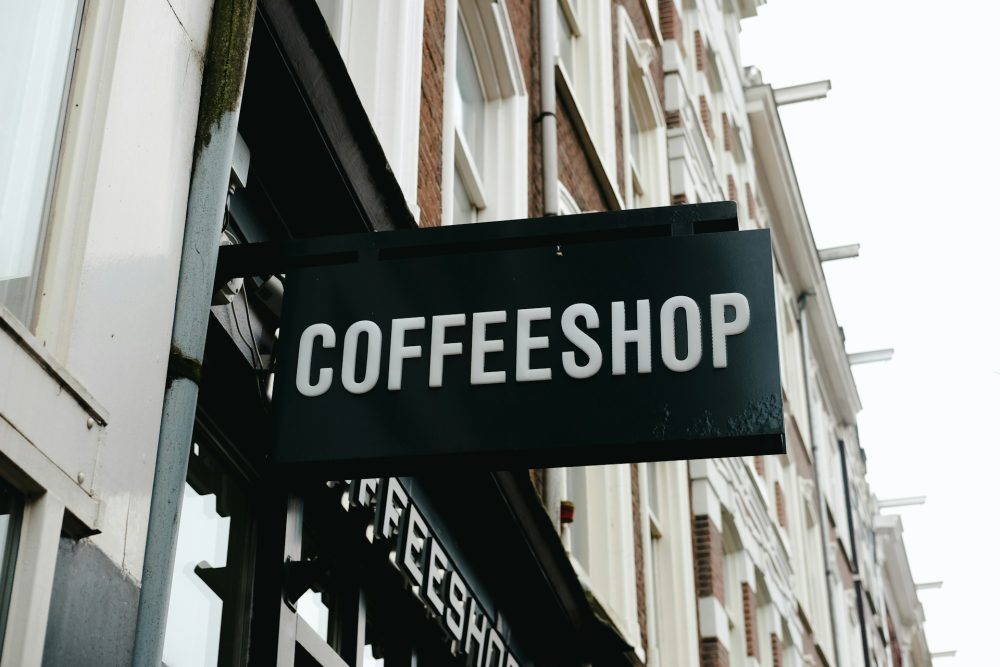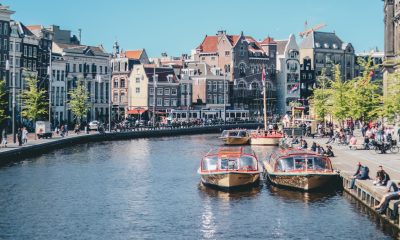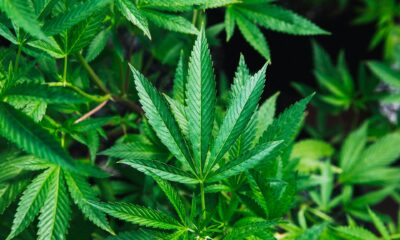Cannabis
Dutch Coffeeshops Face Identity Crisis as Takeaway Trend Grows
The 2024 Dutch government report shows 563 coffeeshops nationwide, a stable number but with a major shift: many are turning into takeaway-only outlets after the 2022 smoking room ban. This change erodes their social role as safe meeting spaces. Experts warn coffeeshops risk extinction if legalization favors simpler distribution models.

The latest government report sheds light on the state of Dutch coffeeshops. At the end of 2024, there were 563 such establishments in the Netherlands. Their number has remained relatively stable for several years. However, behind this stability lies a disturbing shift. More and more coffeeshops are abandoning their social role and becoming mere takeout shops.
The Dutch landscape in numbers: How many coffeeshops are there and where are they located?
The report, prepared by the Breuer & Intraval office on behalf of the government research center WODC, brings a lot of interesting dataThe analysis covers all 342 municipalities in the Netherlands and provides a complete picture of the market..
Stabilization is the new keyword
The number of 563 dutch coffeeshops at the end of 2024 is only slightly lower than the 565 establishments recorded in 2022. This confirms the trend we have been observing since 2017 – the sharp decline in the number of coffeeshops has slowed downIt’s also worth noting that for the first time in over a decade (since 2010), the new municipality has decided to introduce a tolerance policy for coffeeshops..
A line graph titled “Number of coffeeshops in the Netherlands 2014-2024” from a report by Breuer & Intraval. The graph shows three trends: the number of dutch coffeeshops is declining from 591 in 2014 to 563 in 2024; the number of municipalities with coffeeshops (purple line) is stable at 103; and the total number of municipalities in the Netherlands (orange line) is decreasing. The graph also shows that 65% of dutch coffeeshops are on-premises, while 27% are takeaway.
Amsterdam, Rotterdam and The Hague still in the lead
If you are looking for a coffee shop, you will most likely find one in the large cities of the Randstad region. The three cities alone—Amsterdam (167), Rotterdam (39), and The Hague (36)—are home to 242 coffeeshops. That’s 43% of all coffeeshops nationwide.These numbers remain unchanged from the previous survey..
The Two Faces of Coffeeshops: Why Are More and More Places Open for Takeaway Only?
The most important change isn’t the number, but the nature of these places. The report divides them into two categories:
Consumable coffeeshops (66%): Places where you can sit down and legally consume your purchased products (without tobacco, of course). This is the classic “cannabiscafé.”
Takeaway coffee shops (26%): Establishments that operate like a store. You buy a product and then have to leave the premises.
The smoking ban is a game changer
Why this change? The main reason is the ban on creating smoking rooms in public buildings, including coffee shops, introduced on July 1st, 2022.
Officials from 13 municipalities confirm that this regulation forced coffee shops to turn into collection points. As a result, they lose their important social function. They cease to be safe, controlled meeting places, and staff have less contact with customers.
The Silent Threat: Will Coffeeshops Become Redundant?
This transformation carries risks. When a coffee shop is merely a sales window, it loses its unique character.
The Netherlands is currently experimenting with legal, controlled cultivation and distribution of marijuana (EGC).If successful, the government may want to simplify the system. Why maintain a network of private collection points when you can sell a legal product in state-owned vending machines or pharmacies? Losing a social function is a surefire path to market extinction..
Law and politics: How do municipalities regulate the cannabis market?
Each municipality in the Netherlands decides its own policy. Therefore, the picture is very diverse. As many as 233 municipalities (68%) have a “zero tolerance” policy, meaning a complete ban. On the other hand, 103 municipalities (30%) consciously allow them to operate. Almost every one of them (102) sets a maximum number of premises in their area..
AHOJGI criteria – what do you need to know?
Coffeeshops are tolerated but not entirely legal. They must adhere to strict rules known as AHOJGI criteria.:
A (Affichering): No advertising of any kind.
H (Harddrugs): Absolute prohibition on possession and sale of hard drugs.
O (Overlast): Prohibition of causing a nuisance to the environment (noise, garbage).
J (Jeugdigen): Sales and admission to persons under 18 years of age are prohibited.
G (Grote hoeveelheden): Ban on selling more than 5 grams per person at a time.
I (Ingezetenen): Prohibition of sale to persons who are not registered residents of the Netherlands.
Drug tourism under (poor) control
The “I” (resident) criterion was introduced to combat drug tourism. However, the report shows that it is largely a dead letter. As many as 20 municipalities report problems with cannabis tourists, but only four of them even attempt to enforce the rule—and with low priority.
What Shapes the Future? EGC, Germany, and New Licensing Rules
Dutch politics is dynamic. Three important factors influence it:
Legal Cannabis Experiment (EGC): In 13 municipalities, this pilot program has already influenced local law, for example, by suspending decisions on new locations pending its results.
Legalization in Germany: Border municipalities are closely monitoring the situation. Three have already begun monitoring the number of German customers, expecting a decline.
New licensing rules: A growing number of municipalities (already 32) are planning to introduce transparent systems for allocating coffeeshop licenses, for example, through a public lottery or competitive bidding process. This is a response to changes in the law regarding so-called “limited rights.”
Conclusion: What’s next for Dutch coffeeshops?
The 2024 report shows that the Dutch coffeeshops market has reached a certain maturity. The numbers are stable, and policy is evolving, albeit slowly.
The biggest challenge is no longer survival, but maintaining identity. If coffeeshops fail to defend their social role as safe “cannabiscafés,” they may lose out in the future to simpler and cheaper distribution models that will undoubtedly emerge after full legalization.
__
(Featured image by Markus Winkler via Unsplash)
DISCLAIMER: This article was written by a third party contributor and does not reflect the opinion of Born2Invest, its management, staff or its associates. Please review our disclaimer for more information.
This article may include forward-looking statements. These forward-looking statements generally are identified by the words “believe,” “project,” “estimate,” “become,” “plan,” “will,” and similar expressions. These forward-looking statements involve known and unknown risks as well as uncertainties, including those discussed in the following cautionary statements and elsewhere in this article and on this site. Although the Company may believe that its expectations are based on reasonable assumptions, the actual results that the Company may achieve may differ materially from any forward-looking statements, which reflect the opinions of the management of the Company only as of the date hereof. Additionally, please make sure to read these important disclosures.
First published in FaktyKonopne. A third-party contributor translated and adapted the article from the original. In case of discrepancy, the original will prevail.
Although we made reasonable efforts to provide accurate translations, some parts may be incorrect. Born2Invest assumes no responsibility for errors, omissions or ambiguities in the translations provided on this website. Any person or entity relying on translated content does so at their own risk. Born2Invest is not responsible for losses caused by such reliance on the accuracy or reliability of translated information. If you wish to report an error or inaccuracy in the translation, we encourage you to contact us.

-

 Impact Investing2 weeks ago
Impact Investing2 weeks agoIntesa Sanpaolo’s 2026–2029 Growth and ESG Strategy
-

 Business5 days ago
Business5 days agoTopRanked.io Weekly Affiliate Digest: What’s Hot in Affiliate Marketing [Health Trader Affiliate Program Review]
-

 Business2 weeks ago
Business2 weeks agoTopRanked.io Weekly Affiliate Digest: What’s Hot in Affiliate Marketing [Hosting.com Affiliates]
-

 Africa5 hours ago
Africa5 hours agoAir Algérie Expands African Partnerships


















